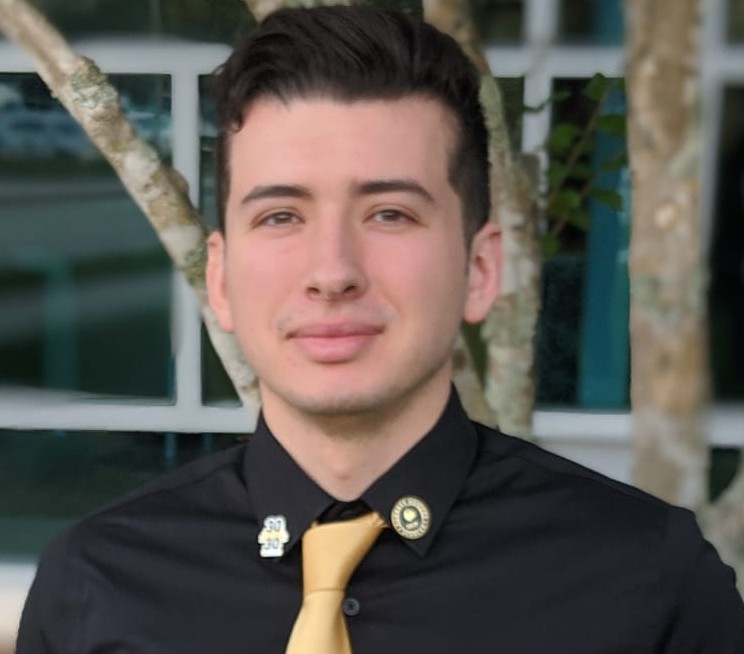Keynote Speakers

Dr. Alvaro Velasquez, Keynote: October 11th
Information Innovation Office (I2O), DARPA
Alvaro Velasquez is a program manager at DARPA, where he currently leads programs on neuro-symbolic and adversarial AI. Before that, Alvaro oversaw the machine intelligence portfolio for the Information Directorate of the Air Force Research Laboratory (AFRL). Alvaro is a recipient of the distinguished paper award from AAAI and best paper and patent awards from AFRL. He has authored over 80 papers and two patents, serves as Associate Editor of the IEEE Transactions on Artificial Intelligence, and is a co-founder of the Neuro-symbolic Systems (NeuS) conference. Alvaro will present on the topic of, “Transferring Assured Autonomy from Abstraction to Reality.” Foundation models, including Chat-GPT and its many variants, have come into prominence in the natural language processing (NLP) community thanks the ubiquity of text data readily available on the internet and the design of modern transformer architectures that can effectively learn from such data. However, the development of a foundation model for autonomy is faced with additional challenges not present in NLP. In this talk, we discuss some of these challenges, how abstract-to-real autonomy transfer is a promising direction, and what the downstream implications of such transfer are in terms of preserving the assurance of systems from the source environment to the target.

Dr. Dragos Margineantu, Keynote: October 10th
Boeing AI Chief Technologist
Dragos Margineantu is a Boeing Senior Technical Fellow and Artificial Intelligence (AI) Chief Technologist who is the technical lead of AI research and engineering in Boeing. His interests include computational methods for robust systems, autonomous commercial flight, anomaly and surprise detection & handling, reasoning under uncertainty, validation and testing of decision systems, cost-sensitive, active, ensemble learning, and inverse reinforcement learning. Dragos was one of the pioneers in research on ensemble learning and cost-sensitive learning and on statistical testing of learned models. At Boeing, he developed assurance methods for decision systems, machine learning based solutions for autonomous flight, airplane maintenance, airplane performance, surveillance, and security. Margineantu served as the Boeing principal investigator (PI) of multiple Defense Advanced Research Projects Agency (DARPA) projects and chaired major ML and data science conferences. Margineantu serves as the Action Editor for Special Issues for the Machine Learning Journal (MLj), edited by Springer. He co-advised graduate students at Massachusetts Institute of Technology (MIT) and KU Leuven in Belgium, served on Canada Research Chair committees, and on NSF review panels. Together with Mohamed Zaki and Sanjay Chawla, he started and co-chaired the Machine Learning Data Analytics Symposia (MLDAS) series since 2014. In his free time Dragos is coaching middle schoolers for mathematics competitions and enjoys nature photography. Dragos Margineantu earned a Ph.D. in Machine Learning from Oregon State University in 2001.


